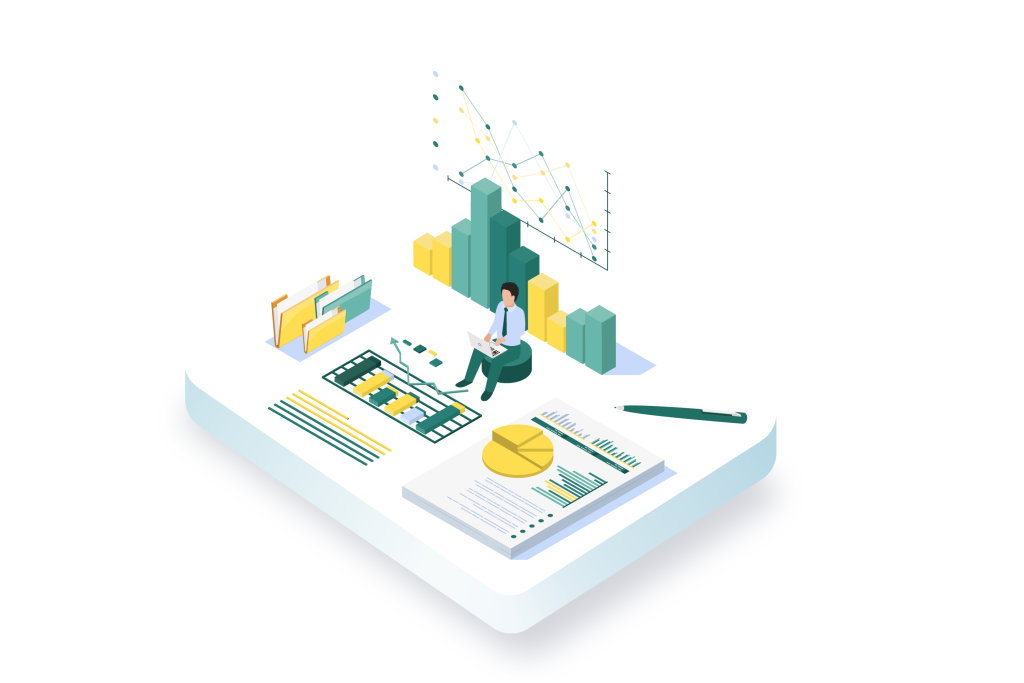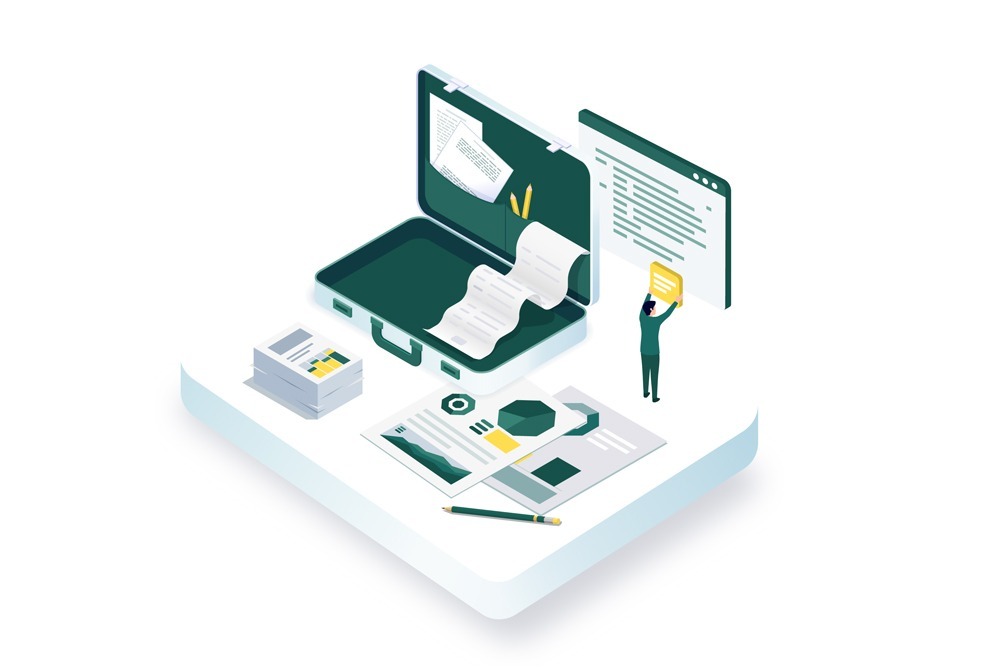Best AI Accounting Software raises a simple question that deserves a clear answer: what would tax season feel like with a system that truly thinks alongside you? Almost instantly, it feels lighter, faster, and far more controlled.
With this level of clarity, choosing the right platform creates a workflow that supports accuracy, clarity, and a sense of calm that many professionals want but rarely experience.
What Is the Best AI Accounting Software for Taxes?
Many people reach a point in the year when they wish tax preparation felt clearer, lighter, and far more approachable. Once you imagine a system that understands your financial world, responds to your needs, and helps you move through each step with ease, the entire process begins to feel different. For this reason, interest in what is the best ai accounting software for taxes continues to grow among individuals and businesses searching for a dependable and supportive tax experience.
As you explore the leading platforms, certain qualities consistently create stronger results. Accurate calculations, organized documents, guided suggestions, and intelligent analysis work together to form a process that feels calm and manageable. In addition, each interaction becomes more structured as the system highlights important information, recognizes patterns in your activity, and keeps your workflow focused on what matters most.
Ultimately, the best AI accounting software depends on your goals, habits, and financial complexity, since every user benefits from a solution that aligns with personal needs and comfort.
How AI Is Changing Tax Preparation
Artificial intelligence is shaping a new kind of tax experience, one that feels clearer, more structured, and much easier to manage. Modern tools work in the background with impressive precision, and you begin to notice a smoother flow at every stage of your tax work. Here is how this shift unfolds:
- Document intelligence: The system reads receipts, statements, and forms with careful accuracy, extracting information that usually takes hours to handle manually. You watch everything fall into place as categories, dates, and totals are identified for you.
- Intelligent suggestions: The platform recognizes patterns in your financial habits and highlights entries that may need attention, which helps you stay ahead long before deadlines approach.
- Productivity impact: A recent survey found that 81 percent of accounting professionals experienced higher productivity after adopting AI tools (according to the 2025 Intuit QuickBooks Accountant Technology Survey). This reflects how much smoother the workload becomes when repetitive tasks are handled automatically.
- Unified organization: All tax-related information is gathered in one structured space where you can review, correct, or update details without searching through scattered files or forgotten folders.
- Guided clarity: The software gently leads you through each step with prompts that make the entire process feel less overwhelming and more interactive, giving you the sense that everything is under control.
This transformation brings a tax experience that feels intelligent, calm, and remarkably supportive, helping you stay prepared without the usual stress.
Key Features to Look for in AI Accounting Software
Accounting teams and business owners often face a mountain of manual work, data entry, reconciliation, matching payments, and preparing reports, before they even reach the part about taxes or analysis. That’s why choosing the right AI Accounting Software matters so much.
Below are the features that really make a difference:
- Automation of routine tasks: For example, systems that auto-capture invoices or receipts, categorize transactions, and reconcile bank feeds free up time for higher-value work.
- Real-time insights and reporting: Seeing updated dashboards and having forecasting capabilities means you’re not waiting until month-end to spot a problem.
- Seamless integrations: It’s important that the software connects easily to your bank, payment systems, your current accounting platform, and tax-filing workflows so you avoid fragmented data.
- Security, compliance, and audit readiness: Given the sensitivity of financial and tax data, strong encryption, clear audit logs, and regulatory alignment matter.
- Scalability and adaptability: Whether you’re a small business now or you’re growing fast, you’ll want a platform that flexes with your volume, complexity, and needs.
In short, a tool that automates the routine, illuminates your numbers, connects everything smoothly, and evolves with you will set you up for a much more manageable tax season and beyond.
AI Tools That Help with Tax Reporting and Filing
Understanding the tools that bring real value during tax season helps you see how ai in accounting software supports reporting, organization, and filing. Each solution offers unique strengths, and the following options stand out for their ability to handle complex tax-related tasks with clarity and structure.
Docyt AI
- Gathers financial information from receipts, statements, payroll records, and vendor files.
- Organizes activity into clear categories that directly support tax preparation.
- Maintains ongoing monitoring so your documents stay ready for tax review throughout the year.
Xtracta
- Extracts structured data from scanned or digital tax documents using advanced OCR.
- Identifies figures, deductible items, and tax form elements with precision.
- Reduces manual data entry, making the preparation process cleaner and more accurate.
Vic.ai
- Interprets invoices and tracks accounts payable to maintain accurate financial records.
- Offers real-time insights that support year-round tax readiness.
- Helps build a consistent financial picture that becomes valuable once the filing season begins.
Suvit AI Tools
- Reads receipts and paperwork quickly through automated data capture.
- Categorizes transactions and highlights patterns relevant for tax preparation.
- Supports professionals who manage high document volumes during tax season.
Botkeeper
- Handles data entry, reconciliation, and monitoring through continuous automation.
- Helps track deductible expenses and tax-sensitive activity as they occur.
- Provides ongoing updates that prevent last-minute document gathering.
BlueDot (via Insidea)
- Analyzes tax rules and identifies relevant deductions based on imported data.
- Helps professionals interpret tax regulations in a clear, structured way.
- Guides document preparation and ensures compliance remains on track.
Taxfyle (via Insidea)
- Assists with tax preparation tasks and document organization.
- Offers AI-supported analysis to keep your workflow smooth and predictable.
- Helps users follow filing steps with consistent guidance.
QuickBooks AI
- Organizes income, expenses, and categories in a way that supports tax-ready reporting.
- Identifies patterns and prompts you about items needing attention.
- Provides predictions and suggestions that keep your records aligned with filing requirements.
Sage AI
- Helps classify entries, monitor transactions, and keep documentation organized.
- Supports accountants and businesses with guided insights throughout the year.
- Ensures smoother tax preparation as information remains clean and structured.
Together, these tools show how AI in accounting software strengthens tax workflows through data accuracy, organized documentation, pattern recognition and intelligent guidance. A tool that aligns with your volume, document style and preferred workflow creates the most dependable filing experience.
Best AI Accounting Software Options in 2025
In today’s fast-moving business world the choice of ai software for accounting can change the tone of your financial workflows: what used to feel heavy and reactive starts to feel sharper, smarter and more proactive. By looking at the platforms that stand out now and into 2025, you can see which tools bring automation, intelligence and ease into your everyday life.
Here is a full list of strong options you might consider:
- Oracle NetSuite – Designed for larger organizations and multi-entity environments, with predictive forecasting, deep automation and wide-ranging AI support.
- QuickBooks Online – Offers AI-driven categorization, smart suggestion prompts and seamless bank feed reconciliation for small to mid-sized businesses.
- Sage Intacct – Focuses on precision and analytics, offering intelligent invoice processing, real-time financial dashboards and advanced AI-enhanced insights.
- Xero – Delivers clean navigation with intelligent features that interpret bank activities, highlight trends and streamline review processes.
- FreshBooks – Tailored for service-based companies, with AI features for expense management, time tracking and smoother tax preparations.
- Zoho Books – Provides smart categorization, proactive alerts and an ecosystem of integrations that make it a strong option for teams upgrading from basic systems.
- Xero – Delivers clean navigation with intelligent features that interpret bank activities, highlight trends and streamline review processes.
- Sage Intacct – Focuses on precision and analytics, offering intelligent invoice processing, real-time financial dashboards and advanced AI-enhanced insights.
- Otto AI – A strong choice for small businesses seeking streamlined bookkeeping with automated expense handling and clear AI-based organization.
- Truewind – Serves startups and growth companies with AI-powered bookkeeping, financial modeling and automated reporting workflows.
- Vic.ai – Specializes in automating invoice processing, AP routing and approval workflows, bringing high efficiency for firms with heavy transaction volumes.
- Zeni – Combines AI-based bookkeeping and reconciliation with human expert support for startups looking for a hybrid solution.
- Netgain – Emerging as a powerful suite for accounting automation, focusing on workflow automation, complex financial close and real-time insights for mid-market to enterprise companies.
Choosing among these tools becomes far easier once you align them with your goals, workflow preferences, and plans for accounting software migration.
Things to Know Before Accounting Software Setup or Migration
Successful transitions start with thoughtful preparation, especially when planning your accounting software setup or moving from an older system into a modern platform. Understanding what needs attention ahead of time helps you protect accuracy, support your team, and create a smooth environment for the new software to operate at its best.
Key points to keep in mind include:
- Data readiness – Clean, organize and map your records so the imported information stays accurate and easy to work with.
- Team training – Give users a brief introduction to navigation, automation tools and core features so daily tasks feel comfortable from the start.
- Integration planning – Review banking links, tax tools, payroll and other connected systems to ensure they connect smoothly after setup.
- Workflow clarity – Adjust internal processes so your team follows consistent steps that match the structure of the new platform.
- Security preparation – Set user roles, permissions and access rules before launch to protect data and maintain control.
- Testing and validation – Run a small test import or sample workflow to confirm that reports, settings and data behave as expected.
- Support and guidance – Keep tutorials, help resources or support contacts available so questions can be handled quickly during the transition.
Strong preparation helps your team settle comfortably into the new system and creates a more stable, efficient accounting environment.
Is NetSuite the Right Choice for AI-Powered Accounting?
NetSuite becomes a strong choice for AI-powered accounting when a business needs depth, structure, and reliable automation across every part of its financial activity. AI-supported features help interpret data, guide decision-making, and maintain consistency in environments with high volume or multiple entities. Many organizations planning a Netsuite migration appreciate how the platform centralizes reporting, automates routine tasks, and supports growth without creating new complexity.
NetSuite fits best when a company wants advanced forecasting, unified dashboards, real-time visibility, and a system that adapts as operations expand. Smaller teams with simple needs may find lighter tools more efficient, but growing businesses that require intelligent automation and strong financial control often see NetSuite as the right long-term solution.
Conclusion
Every tax season becomes easier to handle when you rely on tools that strengthen accuracy and keep your workflow steady. Confidence grows when smart automation supports your daily routine and guides you through complex tasks without slowing your pace.
Choosing the best tax software for tax preparers gives you the structure, clarity, and efficiency needed to deliver dependable results for every client you serve. So, if you’re ready to elevate your process and work with greater confidence, take the next step and choose the platform that aligns with your goals.
Frequently Asked Questions (FAQ)
The answer depends on your business size, tax needs, and how much automation you’re ready to adopt. Many consider QuickBooks Online, NetSuite, and Vic.ai among the best AI accounting software options. These tools use intelligent features to streamline tax workflows, categorize data, and guide users through filing. The best AI accounting software is one that simplifies the process without sacrificing accuracy.
AI Accounting Software automates data entry, organizes documents, and identifies patterns in your spending or income. It helps reduce manual errors and offers suggestions based on real-time analysis. By using AI in accounting software, tax prep becomes faster and more predictable. You stay organized and ready without chasing receipts or digging through spreadsheets.
Before starting your accounting software setup or planning accounting software migration, make sure your financial data is clean and ready. Train your team on navigation and features so daily tasks feel familiar. Confirm that the new software integrates well with your banking, payroll, and tax systems. With the right prep, migration becomes smooth and future-proof.
NetSuite is ideal for companies that need scalable automation, unified reporting, and real-time financial visibility. A well-planned Netsuite migration offers advanced tools for forecasting and multi-entity management. It’s one of the most powerful AI software for accounting when your needs go beyond basic bookkeeping. If your business is growing fast, NetSuite might be the long-term answer.




